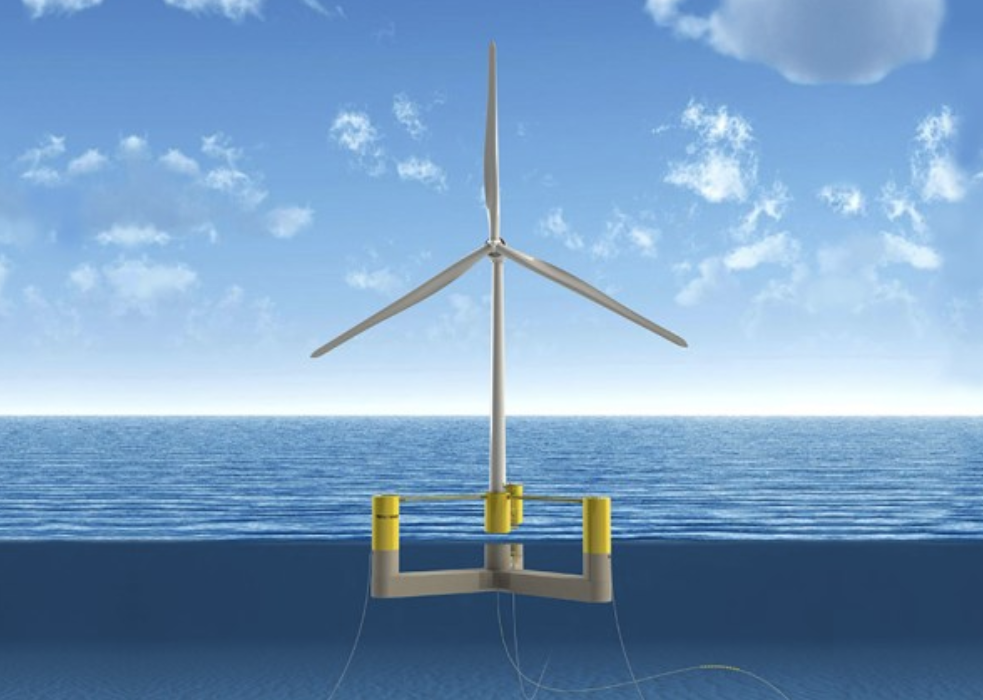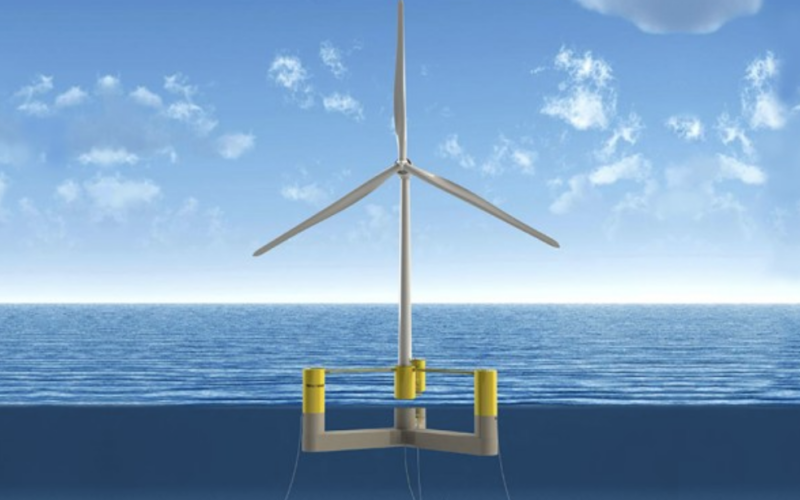(PRESQUE ISLE, Maine, CASTINE, Maine, and BUCKSPORT, Maine) — On Tuesday, leaders from the Maine Community College System (MCCS), Maine Maritime Academy (MMA) and Diamond Offshore Wind announced the signing of a memorandum of understanding (MOU) committing to a partnership that will map out workforce needs of the offshore wind industry in Maine and support the development of offshore wind technicians and other skilled workers.
Leaders from the institutions participated in roundtable discussion at MMA’s Center for Professional Mariner Development to discuss a joint initiative to “marinize” Maine’s workforce to service future offshore wind farms. This agreement marks the first collaboration of its kind in Maine.
The panel discussion included Northern Maine Community College President Tim Crowley, Wind Power Faculty Wayne Kilcollins, MMA Associate Professor of Engineering Sadie Alley Ferreira, MMA’s Director of Center for Professional Mariner Development Tim Achorn, and Diamond Offshore Wind CEO Chris Wissemann. The roundtable touched on goals of the partnership, the programmatic training for technicians and how the three will work together to prepare a shoreside workforce to explore careers offshore. A recorded livestream of the event can be seen at live.mainemaritime.edu.
In remarks opening the event, Maine Maritime President Jerry Paul called the partnership, “A fruitful first step in broadening the scope of Maine’s workforce training.” Paul went on to explain, “Clean energy is forefront in Maine and the maritime industry. MMA is proud to lend its expertise to a cause that will mean more access to jobs for Mainers. We are looking forward to this partnership with the Maine Community College system and Diamond Offshore Wind.”
The event comes on the heels of Northern Maine Community College and MMA receiving nearly $3 million through 2022 and 2023 congressionally directed spending (CDS) grants allows the institutions to jointly pursue Global Wind Organization (GWO) certification, which brings training into alignment with the highest standards in the industry. The CDS grants, championed by both Sen. Angus King and Sen. Susan Collins, allows for the purchase of equipment, the establishment of an online directory, and to hire the faculty required to achieve the GWO standards of training.
“This partnership positions Maine’s workforce to take full advantage of the clean energy future outlined by the State of Maine,” Crowley stated. “NMCC started educating and training wind technicians 13 years ago, and the potential energy off of Maine’s coast represents immense opportunity for Mainers who seek an exciting, high-demand career.”
The state of Maine is seeing increased interest in the offshore wind industry. In February, the governor’s Energy Office issued the Maine Offshore Wind Roadmap, which reflects 18 months of research and is part of an effort to “Free Maine from its over-reliance on fossil fuels, to lower energy costs and volatility, and to curb climate-altering emissions to protect our state’s environment for future generations,” as stated in the document’s executive summary. Research shows that offshore wind is an abundant source of clean and renewable energy, and Maine is poised to be a leader in the field.
Diamond Offshore Wind (DOW) is the state of Maine’s development partner on the Maine Research Array, a 10-turbine offshore wind project that will be located approximately 45 miles east-southeast of Portland. The research array will utilize the VolturnUS semi-submersible technology developed by the University of Maine’s Advanced Structures and Composites Center.
The small-scale research array is designed to create a set of real-world tested best practices and standards that can foster responsible offshore wind development and inform future offshore wind projects in the U.S. and beyond. DOW is also developing the single-turbine demonstration project near Monhegan Island, which will also use the VolturnUS technology.
“Offshore wind will create jobs and a new industry for Maine,” said Wissemann. “We are pleased to be partnering with Maine Maritime Academy and Northern Maine Community College to support training that will provide Mainers with skills that will be in demand for decades to come. Our goal is to provide a way for Mainers to get good paying jobs in clean energy and add a new chapter to the state’s maritime history.”
– Northern Maine Community College


